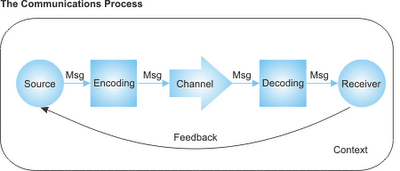Difference between 'Language' and 'a language'
Language refers to a system of communication unique to human beings that makes use of written and vocal symbols. A language, on the other hand is a subcategory of this type of communication peculiar to a particular people, region, geographical region or socio-political background. For example, Creole languages are largely spoken in the Caribbean and Hindi largely spoken in India.
In other words Language refers to the system of human communication and is a more general term than a language which is a given variety spoken by a given speech community (read country). The distinction is usually made by capitalizing the 'L' of the more general term.
Creole as a Languages
Creoles are considered languages as they meet the general requirements of a language. They are:
1. Human
2. Systematic
3. Complex
4. Symbolic
5. Evolutionary/Maturational
6. Arbitrary (In their assignment of meaning to symbols)
Characteristics of Creole Languages: Jamaican Creole & Standard English
*Lexifier language: Language from which the majority of lexical (vocabulary) items are derived.
Creoles vary from their Lexifier (European) languages in many ways. Some of those aspects are listed below:
1. Grammar
Creoles make use of unmarked or bare nouns, verbs and pronouns. Inflection is usually indicated by use of a particle. Examples:
English Jamaican Creole
Bare Noun: Boy+s (pl) Boy dem (pl) (dem is a particle that indicates plural)
Bare Verb: Ran (past) Did/Ben run (past) (Did/Ben are particles that indicate past tense)
Bare Pronoun: Its colour (possessive) Fi it colour ('Fi' is the particle that indicates possession/ownership)
2. Sound
Consonant Clusters
Certain sound combinations that are allowed in English are not permissible in Creole and must change in order to conform to the rules of pronunciation. For example, Creoles do not accept consonant clusters beginning words. Hence, *Sm sounds as in Smith are broken up by a vowel to produce --> Sumith. Words with *Th sounds as in thin drop the 'h' sound to produce tin and them becomes dem etc.
Metathesis
In some Creoles, namely JC certain sounds are switched around. So, 'film' for example becomes flim, 'ask' becomes aks etc. This is referred to as metathesis.
3. Vocabulary
Though they get a significant portion of their lexicon (vocabulary) from European language, creoles have different words to refer to the same object/referent in English. For example, 'girl' in English is 'gyal' in JC; 'child' is 'pikni' and 'eat' is 'nyam' etc.
4. Semantics
Words in English take on different or additional meaning in Creole. This is seen clearly in the naming of Jamaican body parts. For example, foot in JC is used to refer to the entire leg, calf, ankle and foot in English. Jc does not make those above mentioned distinctions in English. In JC 'tears' are referred to as 'eye water', Trinidad refers to the fruit 'guinep' as 'chenet' and the list goes on...
Conclusion: Creole as a language is human, complex, symbolic etc, in its own merit. What other examples of differences between Creole and Lexifier can you identify?
Subscribe to:
Post Comments (Atom)
Featured post
The Communication Process & The Elements of Communication
Systematic=Step by Step=Process Communication as a Process Human communication is interpersonal, it is purposive and it is a process....

-
Systematic=Step by Step=Process Communication as a Process Human communication is interpersonal, it is purposive and it is a process....
-
Register refers to the perceived attitude and level of formality associated with a variety of language. The relationship between the writer...
-
MODULE TWO (2) : LANGUAGE & COMMUNITY Jamaican Creole is considered a language like any other for two basic reasons: 1. It possesses...

This comment has been removed by the author.
ReplyDeleteInformative,helping,👍👍
ReplyDeleteGreat 👍
ReplyDelete